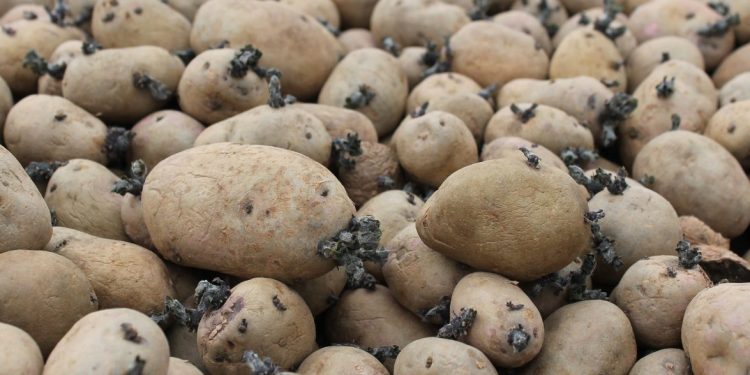#SeedPotatoes #SPCS #ScottishAgriculture #PotatoDiseases #NematodeTesting #VarietalAccuracy #PotatoProduction #AgriculturalCertification #SASA #PotatoVarieties
The Seed Potato Classification Scheme (SPCS) plays a crucial role in maintaining the exceptional quality of Scottish Seed Potatoes. This scheme implements strict standards for disease control and varietal accuracy, ensuring that farmers have access to healthy and true-to-type seed potatoes. Spearheaded by the Certifying Authority, the Science and Advice for Scottish Agriculture (SASA), the SPCS also encompasses various scientific activities aimed at supporting seed potato classification in Scotland. This article delves into the key aspects of the SPCS and highlights its significance in the potato industry.
Key Focus: Seed Potato Classification Scheme (SPCS)
The Role of SASA:
As the Certifying Authority for the SPCS, SASA assumes a pivotal role in implementing and overseeing the scheme. In addition to certifying seed potatoes, SASA conducts extensive scientific activities to support the classification process. One of the key functions involves testing for potato cyst nematodes (PCN) and potato diseases, as well as monitoring the aphid population responsible for spreading certain potato diseases. To enhance these efforts, SASA maintains an active research program focused on PCN, providing valuable insights into disease management and prevention.
Pathogen-Tested Microplants:
The majority of Scottish seed potatoes originate from pathogen-tested microplants housed in SASA’s nuclear stock unit. These microplants undergo rigorous testing to ensure freedom from diseases, offering a clean and reliable source for subsequent potato cultivation. By starting with disease-free stock, the SPCS establishes a strong foundation for the production of healthy and high-yielding potato crops across Scotland.
Supporting Work on Potato Diseases:
SASA also undertakes supporting work to address potato diseases that can impact the classification and export of seed potatoes. Through ongoing research and collaboration with industry stakeholders, SASA contributes to the development of effective disease management strategies. Their dedication to understanding and mitigating potato diseases bolsters the resilience and productivity of Scotland’s seed potato sector.
New Varieties and Potato Identification:
In line with promoting innovation and diversification, SASA provides valuable information on recently listed potato varieties in the UK National List. This resource aids farmers and growers in exploring new options for their potato production. Additionally, SASA offers a DNA fingerprinting service, utilizing an extensive database of over 1,000 potato varieties, including all UK national listed varieties. This advanced identification technique assists in verifying the authenticity and purity of potato varieties, providing valuable support for the SPCS.
Conclusion:
The Seed Potato Classification Scheme (SPCS) ensures the production of high-quality Scottish Seed Potatoes by implementing stringent disease control measures and maintaining varietal accuracy. SASA’s role as the Certifying Authority and its scientific activities contribute significantly to the success of the SPCS. By continually monitoring and researching potato diseases, testing for nematodes and aphids, and supporting the identification of potato varieties, SASA plays a vital role in safeguarding Scotland’s seed potato industry. As the SPCS continues to evolve, it remains a cornerstone of the country’s agricultural sector, offering farmers the confidence and assurance they need to cultivate healthy and productive potato crops.







